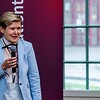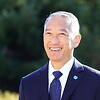-

Novo Nordisk tells staff to return to office
At the turn of the year, Novo Nordisk employees will no longer be able to work remotely. According to the company’s new CEO, the move is intended to accelerate decision-making and improve commercial execution as competition in the obesity drug market intensifies.
-

Who pays for Rebecca Doe – and all of us?
Anna Törner on how easily we get used to the idea that healthcare is free - when it really is about how and who pays for it
-

Rise and Scantox cease conducting animal testing in Stockholm
Access to in vivo toxicology services is significantly decreasing in the Stockholm area as Rise shuts down animal testing and Scantox reorganizes. ”The costs are high, and demand is weak”, says the division manager at Rise to Life Science Sweden.
-

Roche’s Genentech terminates licencing deal with Norwegian biotech
Genentech is ending a license collaboration with Norwegian biotech Nykode Therapeutics regarding a clinical stage cancer vaccine program.
-

Leo Pharma to cut 200 jobs and reorganize
Danish Leo Pharma cuts down on staff in its global operations. Around 200 positions will be cut, while 50 will be moved to Poland.
-

Danish obesity success causes recruitment problems in southern Sweden
The substantial expansion of Danish Novo Nordisk is affecting companies in southern Sweden, which are finding it increasingly difficult to compete for attractive staff.
-

Nobel Prize winner Torsten Wiesel turns 100: “Old men like me should use their experience to help the young”
In 1955, a young Torsten Wiesel jumped on a boat to the US and embarked on a fabulous career as a neuroscientist, crowned with a Nobel Prize for his work. Now 100 years old, he looks back on an intense life and his upbringing in Stockholm, Sweden, which shaped his desire to help the vulnerable in society.
-

Samuel Lagercrantz: “Companies that do this successfully will take the lead”
The development of new medicines and medical technologies should not focus too narrowly on prolonging life. It is equally important to develop treatments that relieve pain or eliminate painful symptoms, writes Samuel Lagercrantz in an editorial.
-

Bayer has cut 1,500 roles – so far
German chemical and pharmaceutical group Bayer cut more than 1,500 roles in the first quarter alone– and most of them were management positions.
-

Petter Hartman: ”Ökad kapacitet kräver innovation”
Om framtidens vårdbehov ska kunna mötas måste det systematiska innovationsarbetet hamna högre upp i prioriteringsordningen, skriver Petter Hartman i en krönika.
-

Nocebo – the evil twin that makes you feel worse
The placebo effect is well known in healthcare, but not so its opposite: nocebo. “The effect is small, but it can have major repercussions,” says Uppsala researcher Charlotte Blease, co-author of a book on the phenomenon.
-

From Valneva to the CEO position at NorthX – “I saw it as a great opportunity”
A new cell therapy for leukaemia, a vaccine in tablet form against cholera, and a proprietary mRNA line with the potential capacity to supply the entire Nordic region with vaccines during a future pandemic. These are some of the projects underway at NorthX Biologics – under the direction of new CEO Janet Hoogstraate.
-

Major investment in women’s health – for a more equal healthcare system
”The regional differences need to decrease and the long-term supply of midwives and other professions needs to be secured,” write Acko Ankarberg Johansson and Désirée Pethrus (both Christian Democrats), in an opinion article.
-

The physician at the tech giant: “Observations in the emergency room made my mind up”
When Nasim Farrokhnia was in third grade at school in Tehran, the capital of Iran, her father gave her a book about Marie Curie, which soon became her favourite book. Perhaps her interest in science was born there and then, as science and new technology have since been a constant feature of her working life. Today, she is a Healthcare Manager in Microsoft’s Western Europe team.
-

The first drugs to slow down Alzheimer’s – but what does it mean for patients?
New treatments for early Alzheimer’s are bringing hope to thousands of patients and their families. The question is, who will get the treatment, how will the right patients be found in time, and will the healthcare system’s resources be sufficient? Life Science Sweden has spoken to Swedish researchers in Alzheimer’s who voice cautious hope but also see further challenges.
-

AstraZeneca moves to brewery quarters in central Copenhagen
AstraZeneca in Denmark is moving its business into central Copenhagen and the old brewery quarters in Carlsberg Byen.
-

Editorial: ”AI that both impresses and frightens”
”In the past, I've rarely been particularly impressed by something that was produced by AI. But this is something completely different”, Samuel Lagercrantz writes in an editorial.
-

The government proposes fines for pharmaceutical companies that fail to notify drug shortages in time
According to a compilation from the Swedish Medicines Agency, the number of residually notified medicines increased by 54 % in Sweden last year compared to the previous year. In a bill presented by the government a number of proposals are put forward to counteract the problem.
-

He saved lives with his theories – was ostracised and ended up in a mental hospital
Hungarian doctor Ignaz Semmelweis (1818-1865) undoubtedly possessed plenty of persistence, diligence and sound reasoning skills – but he was hardly blessed with luck and timing.
-

The new Astra Zeneca CEO: “An incredibly exciting phase”
Almost 27 years have passed since Per Alfredsson from Södertälje stepped into Astra Zeneca as a newly hired engineer. After countless different roles, including heading the production of the company’s Covid vaccine, he is now advancing to the absolute top.
-

“Everyone is screaming for talent”
Attracting talent is one of the life science industry’s major future challenges, which was one of the conclusions of the panel discussion that ended the New Horizons in Biologics & Bioprocessing conference on 15 December.
-

FOKUS Patient turns international
FOKUS Patient is arranging conferences over 3 days in October, and this year, the focus will be on international collaborations.
-

Bought a tablet factory – and built his own empire
In 1995, Thomas Eldered was CEO of one of Pharmacia’s factories in the Stockholm area when the Swedish pharmaceutical giant, after a takeover, decided to move its production abroad. 34-year-old Thomas was facing an imminent risk of losing his job. However, instead, it actually turned out to be the starting point for one of the biggest success stories in Swedish life science.
-

IVI’s Director General on establishing in Sweden: Will need up to 40 employees
The International Vaccine Institute, IVI, hopes to have its first staff on-site in Stockholm within a couple of months, says the institute’s Director General Jerome Kim in an interview with Life Science Sweden.
Få tillgång till allt innehåll på Life Science Sweden
Ingen bindningstid eller kortinformation krävs
Redan prenumerant? Logga in
Gäller endast personlig prenumeration.
Kontakta oss för en företagslösning.